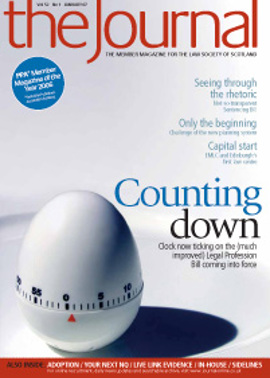Rewarding experience

Despite the Age Equality Regulations, many employers have continued with such systems either through delay in reacting to the new law, or in line with the regulations which permit length of service to be rewarded without further justification for service up to five years.
Mrs Cadman, an inspector with the Health and Safety Executive for almost five years, lodged an application under the Equal Pay Act 1970, alleging that four male inspectors were paid substantially more. These comparators had longer service than Mrs Cadman, acquired, in part, in more junior posts.
The employment tribunal held that Mrs Cadman had been treated less favourably than the four comparators. The HSE appealed to the Employment Appeal Tribunal which, following the Danfoss case (190/88) [1989] IRLR 532), overturned the tribunal and held that where unequal pay arose through using length of service as a criterion, no special justification was required.
Mrs Cadman appealed to the Court of Appeal, which considered that, in the circumstances, the use of length of service as a determinant of pay had a disproportionate impact on women. The court was uncertain, however, whether case law since Danfoss had departed from it. It sought a preliminary ruling from the ECJ on the questions (1) whether, where such a disparate impact arose, article 141 of the EC Treaty required the employer to provide special justification for recourse to that criterion; and (2) whether the answer to (1) would be different if the criterion was applied by assessing employees individually.
Legitimate objective
The ECJ recognised that “the use of length of service as a determinant of pay plays an important part in the continuing, albeit slowly narrowing, gap between female and male workers”. Referring to Danfoss, the court acknowledged that rewarding experience which enables the worker to perform his or her duties better, constitutes a legitimate objective of pay policy. In its view, “length of service goes hand in hand with experience, and experience generally enables the worker to perform his duties better”. As a result, an employer is free to reward length of service without having to establish the importance this has in the performance of the specific tasks entrusted to the employee.
More equivocally, however, the ECJ went on to note that Danfoss did not exclude the possibility that there may be situations in which recourse to the criterion of length of service must be justified by the employer in detail –particularly where the employee supports any challenge with evidence capable of giving rise to “serious doubts” as to whether length of service, in the circumstances, is in fact appropriate to attain the objective of rewarding experience.
Raising doubts
What will constitute “serious doubts” remains to be clarified. In the writer’s view it may well, generally speaking, be difficult for employees to raise sufficient doubts where shorter periods of service are concerned. That said, one can envisage situations where an employee may well be able to establish that, after a certain initial period, comparable employees do not improve their abilities regardless of their length of service or experience. With longer periods of service, it would become far easier for employees to raise sufficient “doubts”.
The ECJ also stated that “where a job classification system based on an evaluation of the work to be carried out is used in determining pay, it is not necessary for the justification for recourse to a certain criterion to relate on an individual basis to the situation of the workers concerned”. Effectively, therefore, there is no need to show in this context, that an individual worker has in fact acquired experience during the relevant period, which has enabled him to perform his or her duties better. The ECJ stated the nature of the work to be carried out must be considered objectively.
In the writer’s view, this raises something of a potential paradox where an employee seeks to raise “serious doubts” by establishing that a comparator has not in fact acquired any additional experience or ability from the length of service which the employer has acknowledged through increased pay. This would be a matter of evidence but is surely at least a possibility.
It is submitted that the ECJ’s judgment is consistent with the approach adopted by the government in relation to service-related benefits under the Age Equality Regulations. As noted, the regulations do not require employers to justify reliance on length of service up to five years as a criterion for determining benefits. Beyond that, any reference to length of service required to attain a benefit must reasonably appear to the employer to fulfil a business need.
It is not, however, too great a leap to envisage situations for employers to be aware of where shorter service than five years does not make a significant difference to an employee’s ability to perform their role. Those situations may well require special justification in respect of any equal pay claims.
John Lee is a solicitor advocate with Scottish Engineering, specialising in employment law representation
THE FIVE YEAR MARK: REG 32(2)
Where length of service exceeds five years, it must reasonably appear to the employer “that the way in which he uses the criterion of length of service... fulfils a business need of his undertaking” (for example by encouraging loyalty or motivation, rewarding experience...)
In this issue
- The Isle of Man
- Contractual handcuffs: enhanced redundancy rights
- Strength of purpose
- Cleared for take-off
- Countdown phase
- A quiet revolution
- Acting your age
- Adopting new solutions
- Clear as mud?
- Majoring in minorities
- Believe in the future
- Appreciation: Dr J Stuart Fair
- Grow your own assistant
- On the radar
- Status of the expert's report
- Rewarding experience
- Restructuring - in hindsight
- Court rules catch up with live link TV
- Scottish Solicitors' Discipline Tribunal
- Website reviews
- Book reviews
- Top notch training
- A clearer way to deal
- Not the best option
- Letting in the disabled
- Single survey: have your say






